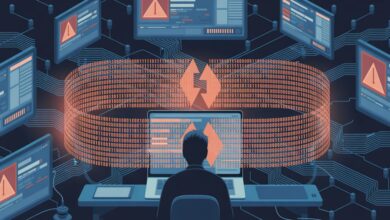Critical Role of Global Watchlist Screening in Modern Business

It is important to be on watch in the contemporary world, particularly when a business is operating in a global environment. The necessity of end-to-end security and compliance has never been more evident since both the general population and the corporate community can join forces in fighting the threats of financial crime to the threats of terrorism. An important aspect of this initiative is the watchlist screening practice, which is an important process that assists organizations in detecting and limiting threats that could be caused by high-risk persons and organizations. This also covers vetting of such sources as the FBI watch list, which is a vital instrument in the counter-terrorism policy of the country.
The idea of a watchlist (in particular, the FBI terrorist watchlist) became a focus of U.S. national security following the events of the September 11, 2001, attacks. The government realized that there was a need to store the scattered intelligence into one all all-inclusive database. It resulted in the establishment of the Terrorist Screening Database (TSDB). Which is managed by the Terrorist Screening Center (TSC) of the FBI. This is commonly known as the terrorist watchlist and is a database that holds the names of those individuals who are known or suspected in the appropriate way to be involved in terrorism. Although the general population mostly identifies this list with airport security, the so-called No Fly List is only a minor subset of its use, also used in applications of visa, law enforcement, and, more frequently, in corporate compliance.
Watchlist Screening under a Broader Scope.
In addition to the direct application of the FBI watchlist by the government to manage risk, there are other complex risk management strategies applied by the private sector. Financial institutions, fintech companies and a large number of other businesses regulated by the global watchlist screening are all obligated to undertake this practice. This is done by ensuring that customer and business partner information is matched to a multitude of global databases. Such databases are used by different governmental bodies, international organizations, and law enforcement agencies and include information about people and organizations that are associated with various illegal actions.
Sources of Watchlists that are important and their purpose.
These lists include such cases as a violation of sanctions to money laundering, human trafficking, and public corruption. The most notable ones are the Office of Foreign Assets Control (OFAC) sanctions list of the U.S. Treasury Department, the list of the most wanted by Interpol, and the lists provided by the United Nations and the European Union. A comprehensive global watchlist screening will help companies to make sure that they do not contribute to financial crimes or international violations of laws unintentionally. The implications of failure to comply might be harsh, such as fines in the millions of dollars, tarnishing of reputation, and even criminal prosecution. In 2023, a report suggested that the world penalties in financial crime amounted to more than 5 billion dollars, and the financial risk of poor screening is substantial.
The procedure of professional FBI watchlist search of a business is not concerned with the direct access to the classified governmental information, but with the ability to make use of the commercially available compliance solutions. These software systems pool together data across a great number of public and private watchlists, even those that use or are connected to FBI and other government data. These applications apply advanced algorithms to compare names, date of birth, and other personal data. They are even able to consider common variation, spelling errors, and alias, which is important to prevent false negatives (not finding a true match) and false positives (flagging an innocent person).
The Change Machinery of Modern Screening.
With the current state of watchlist screening tools, they are extremely advanced, and in many cases, they make use of artificial intelligence and machine learning to automate the process. They operate under several major steps: data collection, real-time screening, risk assessment and constant monitoring. The information of a customer is verified with the aggregated databases during the onboarding of the customer. In case there is a possible match, or a hit, the system marks the case as a case to be reviewed later. This initiates a cycle of enlightened due diligence wherein a compliance officer or analyst goes out to determine the nature of the match and ascertain the degree of risk. This is a proactive strategy that prevents businesses to get into a mess with people who pose high risks even at the initial stages.
Ongoing Surveillance and Legal System.
Take the case of a giant bank in the United States. This bank is bound by federal laws such as the Bank Secrecy Act and USA PATRIOT Act to perform much due diligence on its consumers. This has an effective watchlist screening program. A successful program will not merely conduct a preliminary screening, but will also, regularly, against the new developments in global watchlists, be able to compare the data of customers to the new records.
As an example, should a new individual be put on a sanctions list, the banking system would automatically indicate a possible match of an existing customer, preventing the bank from taking immediate steps, including a freeze of the assets or a Suspicious Activity Report (SAR). Such continuous watchfulness is crucial due to the dynamism of threats as well as the regular changing nature of regulatory needs. One of the problems with the watchlist that has consistently been challenged in a court of law is due process, and courts and oversight bodies have tried to make sure that the procedure of adding and removing names is just and transparent.
Conclusion
Watchlist screening and its essential elements of an FBI watchlist search are fundamental to contemporary security and conformity in the United States. It is one of the most crucial collaborations between the government and the business world. By using the advanced technology to filter through the known threats, businesses not only comply with the law, but are also contributing actively to the combating of financial crime and terrorist actions. This positive and ongoing initiative will assist in safeguarding the financial system, the image of the companies, and aid in the overall objective of national and international security.




